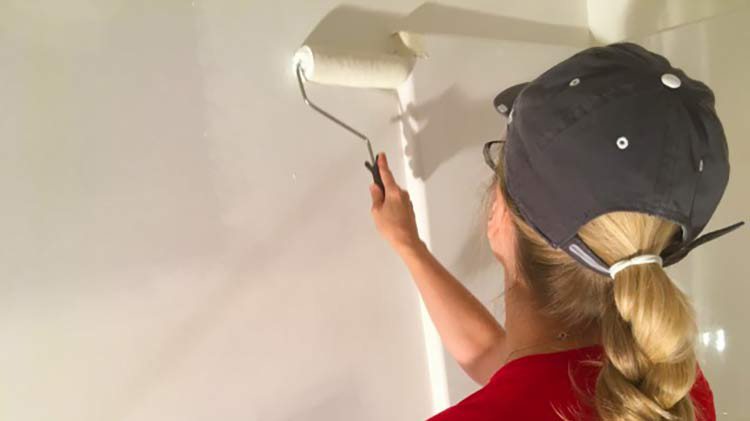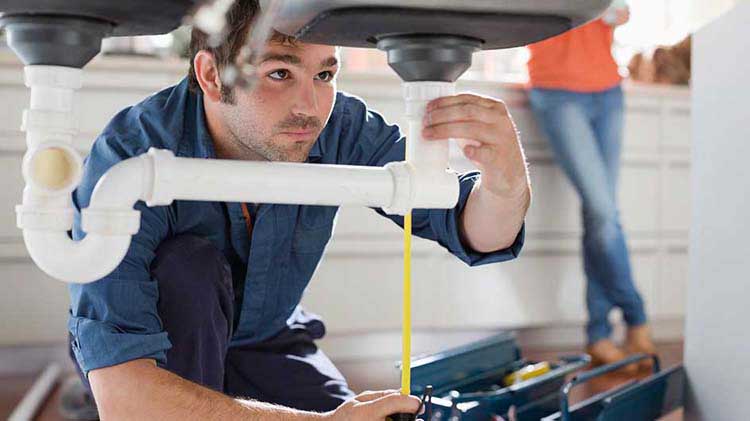Home warranties
Having a home warranty could help you when problems arise with your home. Here are some tips to help explain what they are and how they work.
Closing on a house can be a source of enormous achievement, despite any difficulties you may have gone through to arrive at that moment. On the other hand, it may be overwhelming to find out that there are additional expenses that come with having a home, and that its purchase is just the first step.
For example, if you financed your home, mortgage lenders typically require that borrowers have homeowners insurance. Which makes complete sense — not just for the lender, but for the buyer as well, since a house is a large investment that can take years to pay off. In short, having to pay homeowners insurance premiums may seem a bit insignificant compared to the risk of losing your home in a fire, weather-related catastrophe or accident. But is that all?
Home warranties are an option for homeowners
Let's suppose that you are a first-time homebuyer and have closed on a 25-year-old home. You move in with your family and everything is great until months later, in the middle of summer, the air conditioning goes out. Or some pipes in the basement break. Or there's a short circuit.
Having homeowners insurance won't necessarily help you with any of these problems. Check with an agent on the details of your coverage since homeowners insurance may cover damages to the structure of your home or personal property because of a covered loss, and it may exclude equipment and appliance repairs that are needed due to wear and tear. In the latter case, you'll likely have to call a technician and pay out-of-pocket for the repair or replacement of your equipment. This is when the purchase of a home warranty can be helpful prior to these headaches occurring, especially if you are buying an older home.
What is a home warranty?
A home warranty is not insurance. It's a service contract that certain companies offer that may help cover problems and breakdowns of a home's main systems, as well as many home appliances. These contracts are typically annual contracts and renewable, with prices ranging from $350 to $700 according to Consumer Affairs in 2025, although more comprehensive coverage can cost between $1,200 and $1,400.
Given the convenience and options that home warranties may offer, real estate agents might recommend that they be included in the purchase agreement, free of charge for the buyer, especially if the home is 10 years or older. According to the website This Old House, home warranties have become a helpful selling tool.
What does a home warranty cover?
Home warranties typically cover the major systems that make a home function, and generally offer coverage on the following (although we recommend that you confirm the list below with the company of your choice prior to making your decision):
- Refrigerators
- Dishwashers
- Washing machines and dryers
- Air conditioning and heating equipment (HVAC systems)
- Kitchen stoves and ovens
- Water heaters
- Electrical systems
- Water pipes and plumbing in general
- Sump pumps
- Spa and pool equipment
Who does the repairs?
Companies that offer home warranties have agreements with technical service companies that are insured and have been approved to offer services in your area. When something breaks down, you call them or log into their website to report the problem and schedule a service technician. Upon their visit, the technician determines whether the problem involves repair or replacement.
The owner would be solely responsible for paying the agreed-upon cost of "service calls" that they signed up for on their home warranty, which may range between $75 and $150, although they may also have to pay any extra amounts exceeding the limits established in their plan. And since companies issue their own policy language, it's important to review the terms and conditions beforehand that will determine the service you receive for your particular situation.
Is having a home warranty worth it?
Only you can determine whether it's worth it or not to have a home warranty, or whether it's worth renewing every year if one was included with the purchase of your home. The age of the appliances in the home and how a company responds in the first year of service can be key in deciding whether it'd be worth keeping a home warranty.
Paying for additional protection may be important, but it's entirely up to you to decide whether the price you pay is worth it, or whether you're paying too much for services that you may not need.




